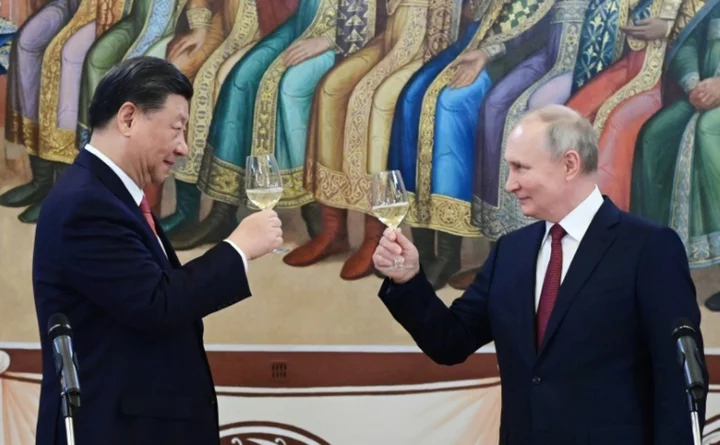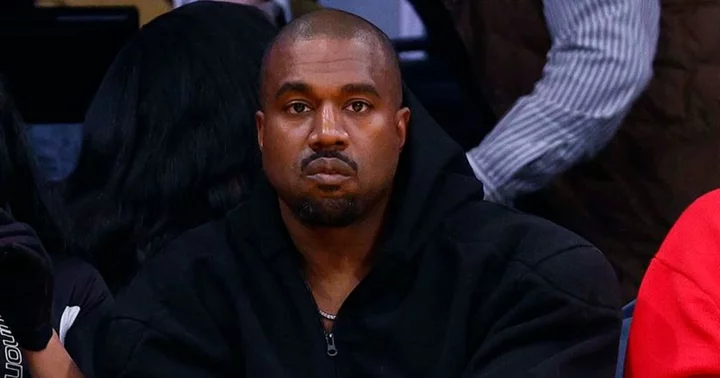Chinese imports of Russian oil last month hit their highest level since Moscow's February 2022 invasion of Ukraine, customs data showed Tuesday, as Beijing offers an economic lifeline to an increasingly isolated Kremlin.
China is Russia's largest economic partner, with trade between them reaching a record $190 billion last year.
In May, China imported 9.71 million tonnes of oil from Russia, Beijing said, more than double the amount from February 2022.
The figures reflect a broader deepening of economic ties between the countries, with overall trade in May soaring to levels not seen since Moscow's invasion of Ukraine.
They also occur in the context of China's rebounding economy, following the end of strict zero-Covid measures late last year that had bitten into energy demand.
During a summit in March, Chinese leader Xi Jinping and Russian President Vladimir Putin pledged to boost trade to $200 billion in 2023 as they hailed their "no limits" partnership.
Russian energy deliveries to China this year are set to grow by 40 percent, Deputy Prime Minister Alexander Novak said last month.
Russia's gas exports plummeted in 2022 after a flurry of Western punishments over Moscow's offensive in Ukraine.
Speaking about Russia's economy this month, Putin said the second quarter of last year had been "the most difficult" after unprecedented sanctions.
As Europe looked for other energy suppliers, Moscow turned to alternative buyers including China, with which it is already linked by the Power of Siberia pipeline.
After his talks with Xi, Putin said that "all agreements have been reached" on the massive new Power of Siberia 2 project.
That pipeline could facilitate the transport of 50 billion cubic metres of natural gas to China annually, roughly on par with the total capacity of the abandoned Nord Stream 2 project from Russia to Germany.
Moscow is confident that the new pipeline will go ahead, but Beijing has so far avoided an explicit commitment.
- 'A new era' -
China and Russia have in recent years ramped up economic cooperation and diplomatic contacts, with their strategic partnership growing closer since the invasion of Ukraine.
Beijing says it is a neutral party in the war, but has been criticised by Western countries for refusing to condemn Moscow and for its ties with Russia.
Analysts say China holds the upper hand in the relationship with Russia, and that its sway is growing as Moscow's international isolation deepens.
In February, Beijing released a paper calling for a "political settlement" to the conflict, which Western countries said could enable Russia to hold on to much of the territory it has seized.
During their March summit in Moscow, Xi invited Putin to visit Beijing and the two leaders declared that ties were "entering a new era".
And last month, the Chinese leader offered his "firm support" on Moscow's "core interests" at a meeting with Prime Minister Mikhail Mishustin, during the highest-level visit by a Russian official to China since the Ukraine invasion.
bur-sbr-oho/lb









